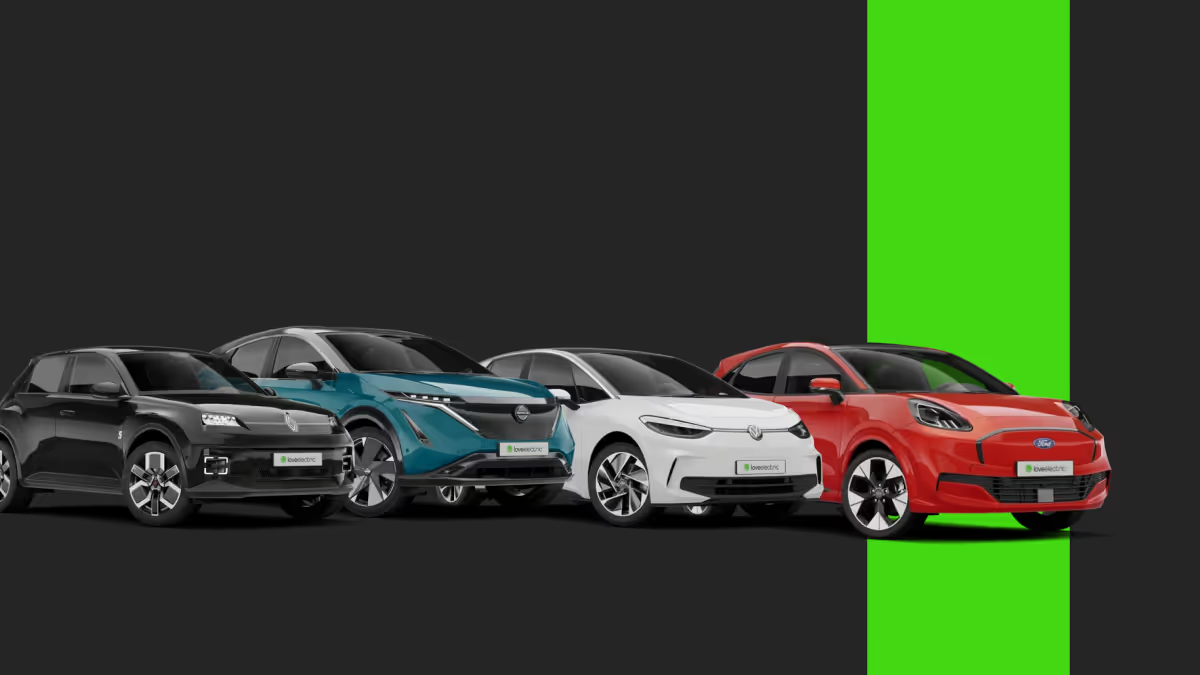EV drivers must protect themselves from volatility in the used car market

This article was originally published in Sustainable Business Magazine.
Electric car drivers need to protect themselves from volatility in the used car market, following Tesla’s dramatic decision last week to slash the prices of its two best selling cars, the Model 3 and Model Y, by up to £8,000.
Steve Tigar, CEO and founder of loveelectric, whose green car scheme greatly reduces the cost of EVs, warned that these cuts could lead to a decrease in the value of secondhand EVs. This is because sellers may need to price their used electric cars cheaper than new models to attract buyers. As the market leader in EVs, Tesla's move could mark the beginning of a price war among rival car manufacturers and decrease the value of all used EVs across the market.
Difficulties calculating residual prices are responsible, in part, for keeping electric car leases high. Because they are relatively new technology, there is little data available for future second-hand car value – and announcements such as this from a brand of Tesla’s renown can complicate the market even further.
Several factors impact residual values, including battery technology, fuel costs, government incentives, and consumer demand. For EVs, batteries sit at the heart of this calculation. The battery’s capacity and lifespan can significantly impact the vehicle's overall performance and value – and, therefore, how the electric car will retain that value.
“The residual values of electric cars are facing increasing pressure,” Tigar advised. “The increasing cost of living and rising interest rates for car financing makes it difficult for used car buyers to afford electric cars. Additionally, the growing supply of used electric cars may temporarily exceed demand.”
Recently, cap hpi, a reputable used car pricing guide in the automotive industry, warned that secondhand electric cars are becoming increasingly difficult to sell, resulting in prices being lowered to shift them.
Furthermore, auction giant Aston Barclay reported that the average price of a used EV dropped by nearly £5,000 in the last quarter of 2022. Used Tesla Model 3 prices fell by 21% in 2022 alone: an indicator of the volatility of residual pricing.
With this lack of certainty casting a shadow over the electric car market, Tigar advises EV drivers to consider leasing or salary sacrifice to shield themselves from fluctuations in the value of their used cars.
“Leasing is the perfect solution. It allows for a fixed monthly rental, regardless of the used car market, and the leasing company takes on the risk of the car's value at the end of the contract,” said Tigar.
“And salary sacrifice is even better still, compounding the benefits of leasing. Drivers with an all-inclusive salary sacrifice lease (with service, maintenance, and insurance included) fund their lease through their gross salary, resulting in significant savings of up to 60% in taxes and national insurance compared to a personal lease. In some cases, salary sacrifice can even make it cheaper to fund a new EV than to finance a used electric car privately.”
Tigar believes that this volatility is to be expected for any new technology. He expects that residual values will eventually stabilise as the 2030 ban on the sale of new petrol or diesel engine vehicles approaches and the speed of battery technology begins to level out.
“2022 was a huge year for electric cars in the UK. We were thrilled to see that the number of electric car registrations outstripped petrol and diesel registrations for the first time in December 2022. As electric cars across the board become more affordable, and residual values begin to level out, we’ll start to see the swing from ICE to electric.”
“There is an unstoppable momentum building behind electric cars: they’re great to drive, electricity is much cheaper than petrol or diesel, and, of course, they are a vital answer to both local air pollution and climate change,” he concluded.





.avif)